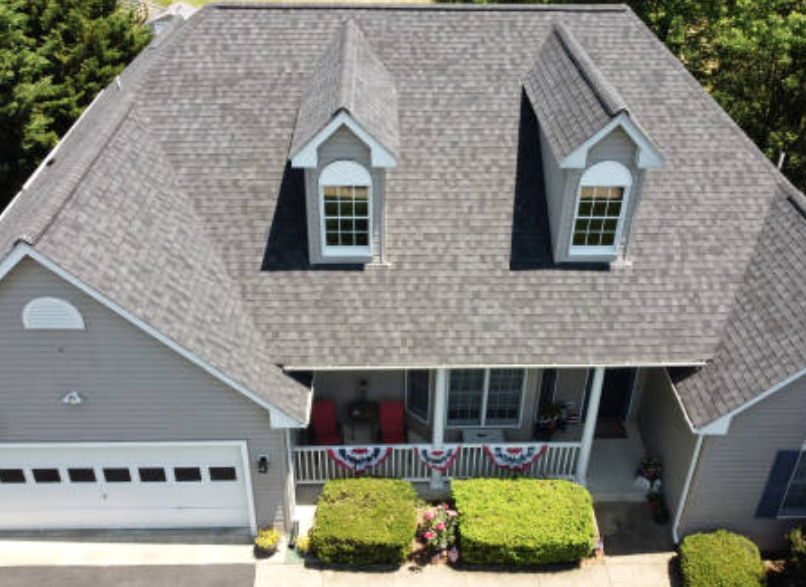Choosing the right roofing material is one of the most important decisions a homeowner can make. Among the many options available, metal roofing and asphalt shingles are two of the most popular choices. Both materials have their advantages and disadvantages, making it essential to evaluate which option is best suited for your home. In this blog, we’ll compare metal roofing and asphalt shingles, highlighting their pros and cons, and explaining why metal roofing is a long-term investment.
Metal Roofing
Pros
- Durability
Metal roofs are renowned for their longevity, with lifespans ranging from 40 to 70 years. This far exceeds the typical lifespan of asphalt shingles, which usually last 15 to 30 years. Metal roofs can withstand extreme weather conditions, including high winds, heavy rain, and hail, making them an excellent choice for homeowners in harsh climates.
- Energy Efficiency
One of the significant advantages of metal roofing is its energy efficiency. Metal roofs reflect solar heat rather than absorb it, helping to keep your home cooler in the summer months. This reflective property can lead to lower energy bills, particularly in warmer climates, where cooling costs can add up significantly.
- Low Maintenance
Metal roofing requires minimal maintenance compared to asphalt shingles. Once installed, metal roofs typically do not need frequent repairs, and any maintenance required is often limited to occasional inspections and cleaning. This can save homeowners time and money over the years.
- Weather Resistance
Metal roofs are highly resistant to various weather conditions. They can withstand gusts of up to 140 miles per hour, resist fire, and repel moisture, reducing the risk of mold and mildew. This durability makes them a reliable option for any home.
- Sustainability
Many metal roofs are made from recycled materials and are recyclable at the end of their lifespan. This eco-friendly aspect is becoming increasingly important to homeowners who want to minimize their environmental impact.
Cons
- Initial Cost
The initial investment for metal roofing is typically higher than that of asphalt shingles. While this can be a deterrent for some homeowners, it's essential to consider the long-term savings associated with durability and energy efficiency.
- Noise
Metal roofs can be noisier during rain or hail unless properly insulated. However, with modern insulation techniques, this concern can be mitigated.
- Installation Complexity
Installing a metal roof requires skilled labor and specialized techniques to ensure it performs well. Therefore, it's crucial to hire an experienced contractor to avoid potential issues.
Asphalt Shingles
Pros
- Lower Initial Cost
One of the most appealing aspects of asphalt shingles is their affordability. The lower upfront cost makes them an attractive option for budget-conscious homeowners.
- Wide Variety
Asphalt shingles are available in a vast array of colors, styles, and designs, allowing homeowners to find the perfect match for their home's aesthetics.
- Ease of Installation
Asphalt shingles are generally easier and quicker to install compared to metal roofs. Many contractors are well-versed in their installation, which can contribute to faster project completion.
Cons
- Lifespan
Asphalt shingles typically have a much shorter lifespan than metal roofs, lasting only 15 to 30 years. This means that homeowners may need to replace their roofs multiple times over the life of a metal roof.
- Maintenance
Asphalt shingles require more maintenance and are more susceptible to damage from extreme weather conditions. Homeowners may find themselves facing repairs or replacements more frequently than those with metal roofs.
- Energy Inefficiency
Unlike metal roofing, asphalt shingles absorb heat, which can lead to higher cooling costs during hot months. This energy inefficiency can be a significant drawback in warmer climates.
- Environmental Concerns
Asphalt shingles are less eco-friendly compared to metal roofs, as they are typically not recyclable and contribute to landfill waste.
Long-Term Investment
When considering the long-term value of your roofing choice, metal roofing emerges as a smart investment. While the initial costs may be higher, the durability, energy efficiency, and low maintenance requirements of metal roofs can lead to significant savings over time. Homeowners can also benefit from increased resale value, as metal roofing is often seen as a desirable feature by potential buyers. Furthermore, some insurance companies may offer discounts for homes with metal roofs due to their enhanced durability and fire resistance.
Conclusion
Both metal roofing and asphalt shingles have their advantages and disadvantages, making the choice a personal one based on your specific needs, climate, and budget. However, when considering long-term benefits, metal roofing stands out as a superior option for many homeowners. Its durability, energy efficiency, and minimal maintenance make it a worthwhile investment that can provide value for decades to come.




